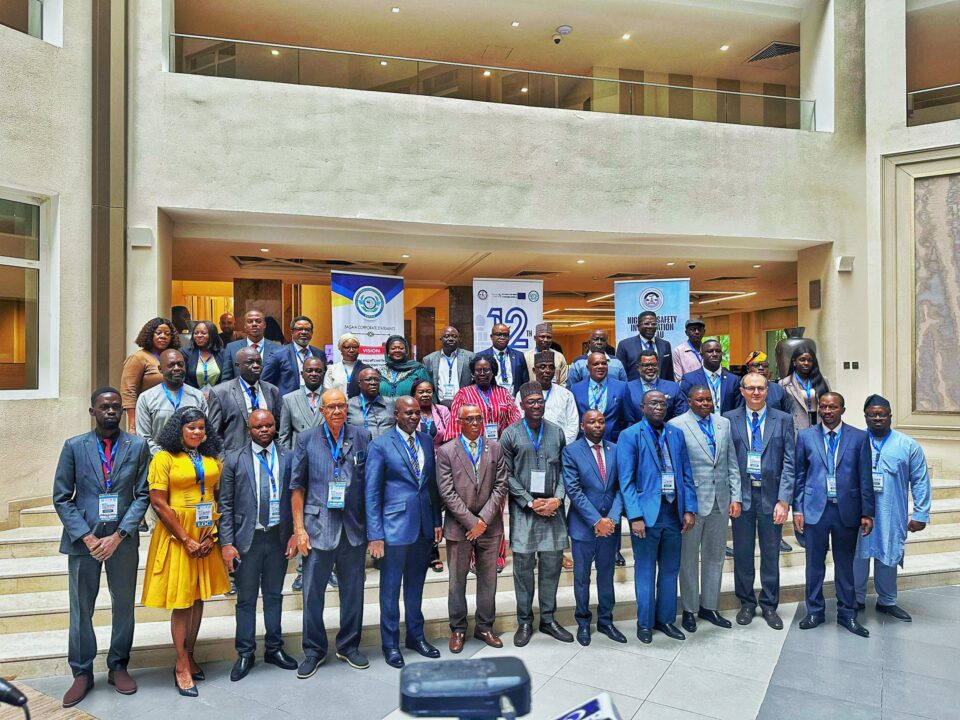The
This was disclosed by the BAGAIA Commissioner, Charles Erhueh, during the opening ceremony of the 12th BAGAIA Commission Meeting in Abuja on Monday.
The meeting, billed to support from 28-30 July under the theme “Celebrating Our Collective Wins in Capacity architecture and Aviation Safety in the BAG Region and Beyond”, is hosted by the Nigerian Safety Investigation Bureau (NSIB).
“It is worth underscoring one tough-earned success: the sub-region’s enviable record of none hull losses in the final six years. This is not a fluke—it is the outcome of rigorous safety observe-up, effective recommendation implementation, and cross-border collaboration between sovereign agencies,” Mr Erhueh remarked.
This, the commissioner declared, marked what officials possess described as “a arduous-earned success” in the region’s aviation safety record.
BAGAIA is a regional aviation misfortune investigation organisation established to serve the member states of the Banjul Accord clique (BAG) in West Africa. The purpose and core mandates of the team are to conduct separate investigations into aircraft accidents and serious incidents, promote aviation safety through effective reporting and safety recommendations, framework capacity in incident investigation across its member states and harmonise safety procedures and investigation protocols in chain with ICAO Annexe 13 standards.
Member States of BAGAIA comprise Nigeria, Cape Verde, Gambia, Ghana, Sierra Leone, Liberia and Guinea. Although some of these countries enjoy established their have liberated incident Investigation Bureaus (AAIBs), they still operate collaboratively under the BAGAIA framework for technical support, training, and joint investigations.
Challenges
On Monday, in what he described as his final address as chairman of the commission, Mr Erhueh reflected on major safety milestones since assuming office in 2019.
At the time, he announced only two member states—Nigeria and Cape Verde—had free mishap investigation authorities.
even so, he noted the number has risen to five at present, with Ghana, Sierra Leone, and Liberia joining the fold.
“This leap—from two to five—is not just a statistical milestone. It is a testament to our collective will, aligned with Annexe 13 compliance, and speaks to the strength of our regional safety harmonisation,” Mr Erhueh noted in his remarks.
He also highlighted that Sierra Leone’s aviation safety transformation saw its ICAO audit score rise from under 17 per cent to 72 per cent within two years, following technical support from BAGAIA.
Beyond statistics, the commissioner cited critical regulatory reforms, including the adoption of BAGAIA Safety Investigation Regulations (2021) and a harmonised Investigation Policies and Procedures Manual (BIPPM-2022) now used by member states.
These frameworks, he noted, feature streamlined how investigations and safety recommendations are managed regionally.
During his six-year tenure, Mr Erhueh mentioned BAGAIA conducted 96 crash investigations and 67 serious incident investigations, issuing a total of 316 safety recommendations and three safety bulletins.
He attributed this to the growing role of partnerships in strengthening aviation safety, including memoranda of cooperation with East and Southern Africa bodies such as CASSOA and SASO, and that a pending arrangement with the Interstate Aviation Committee in Moscow is also expected to deepen international cooperation.
“release us deploy what we already retain—and operate it well,” he claimed, calling for better utilisation of existing aviation labs and avoiding resource duplication.
He acknowledged persistent challenges, particularly funding gaps in countries admire Sierra Leone, Liberia, and The Gambia. Still, he commended their governments for continuing to engage and progress capacity despite limited resources.
In his remarks, NSIB Director universal Alex Badeh described the gathering as a testament to the strength of “our collective resolve”.
He stated the Banjul Accord association has extended served as a beacon of regional cooperation, uniting member states in a shared mission to enhance the safety, reliability, and accountability of draft transportation.
“these days, as we convene in this dynamic city, we reaffirm our dedication to this noble cause,” he noted.
He affirmed that cooperation among member states is not merely a goal—it is the foundation of our success, and that in an interconnected world, aviation incidents transcend borders, necessitating seamless collaboration in incident investigation, knowledge sharing, and capacity tower.
”By pooling our expertise, resources, and insights, we strengthen our expertise to name risks, implement effective safety recommendations, and prevent afterward occurrences,” he explained.
He noted that the NSIB is proud to support the collaborative spirit, as evidenced by their ongoing technical assistance to the Liberian Aircraft calamity Investigation Bureau and discussions with the Ghana AIB to institute a flight recorder laboratory.
“This meeting provides a vital platform to deepen our partnerships, exchange best practices, and align our efforts with international standards, such as those outlined in ICAO Annex 13,” Mr Badeh mentioned.
“Together, we can address emerging challenges—whether bird strikes, operational complexities, or technological advancements—ensuring that our skies remain safe for all,” he claimed.
review ALSO:
Nigeria, Egypt sign MoU to strengthen aviation cooperation in Africa
Looking Forward
As he prepares to transition from his leadership role, Mr Erhueh urged stakeholders to sustain current momentum through improved funding, advanced training in tools like ECCAIRS 2.0, and full operational autonomy for emerging investigation bodies in The Gambia and Guinea.
“Our toil is not done—it evolves. Every occurrence we investigate is a lesson. Every lesson implemented is a existence potentially saved,” he concluded.
The meeting is being attended by top officials from ICAO, NSIB, and other aviation bodies, and is expected to chart a new course for inter-regional safety cooperation across the African continent.


